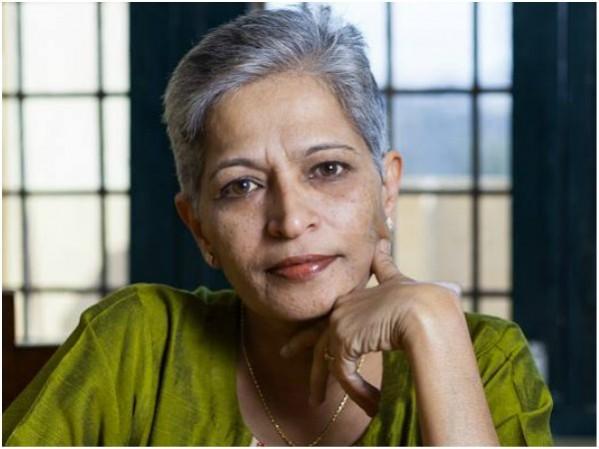
Gauri Lankesh, who was killed by unidentified men outside her house on Tuesday, September 5, was known for her fierce writing. She owned 'Gauri Lankesh Patrike,' a left-leaning tabloid, and was an activist for communal harmony.
Who is Gauri Lankesh?
Gauri Lankesh was born in 1962 to eminent journalist-poet P Lankesh and Indira. Her roots were in Konagavalli village in Shivamogga district. Although they belonged to Lingayat community, her father, an athiest, disaffiliated from the religion. She too inherited the same values.
She studied in Bengaluru along with her siblings Indrajith Lankesh and Kavitha Lankesh. Gauri Lankesh, by her own admission, was a tomboy. She had the ambition to become a doctor at her young age, but her interest gradually shifted towards journalism.
After completing BA degree from the Central College in Bengaluru, she earned masters in journalism from the Indian Institute of Mass Communication in New Delhi. Her journalism career started with The Times of India and worked in a few reputed organisations. She also wrote guest columns in foreign magazines.
Notably, Gauri Lankesh took the charge of the New Delhi bureau for ETV Telugu. However, she came to prominence after the demolition of Babri Masjid in 1992 as she started expressing strong views against communalism and polarisation.
Gauri Lankesh returned to Bengaluru following her father's death in 2000. Now, she had the responsibility of taking the legacy of her Lankesh Patrike, founded by her father, forward. However, differences cropped up between Gauri and her brother Lankesh over editorial issues.
They had a spat in public and she left the publication to float her own tabloid 'Gauri Lankesh Patrike,' which does not take advertisements from the government and corporations.
The tabloid became a tool to freely express her views on the issues plaguing the society. She extensively wrote about women empowerment, education and communal politics.
Gauri Lankesh wrote critical pieces on Manusmṛiti, the RSS and the BJP. Her stand on the issues like the attacks on minorities, Baba Budan Giri (Datta Peeta) and Ramachandra Mutt controversy invited the wrath of the right-wing groups.
Recently, she backed the separate religion status for the Lingayat community.
Gauri Lankesh was convicted of defamation in two cases and sentenced to six months in prison and a fine of Rs 10,000. However, the court also granted her bail and allowed her to appeal to a higher court.
Journalism Apart
Going outside the scope of journalism, she stood up for the communal peace through Forum for Communal Harmony (Karnataka Komu Souharda Vedike) and worked towards rehabilitating Naxals to bring them to the social mainstream.
Gauri Lankesh also had great interest in literature. She wrote criticism on SL Bhyrappa's Avarana, translated Tales of the Dervishes to Kannada with the title 'Darveshiya Kathegalu' and published many books, including the Kannada edition of Gujarat Files, written by Rana Ayyub.
Family Life
Gauri Lankesh's marriage with journalist Chidananda Rajghatta didn't last long. In an interview, she said that they divorced on a mutual consent, but continued to remain friends. She claimed that she did not miss family life and that her busy schedule did not let her think about another marriage. Gauri loved spending time with her neice Esha. Notably, she considered Jignesh Mewani, a leader of the Dalit agitation in Una and Kanhaiya Kumar, JNU students union activist, as her "adopted sons."

















